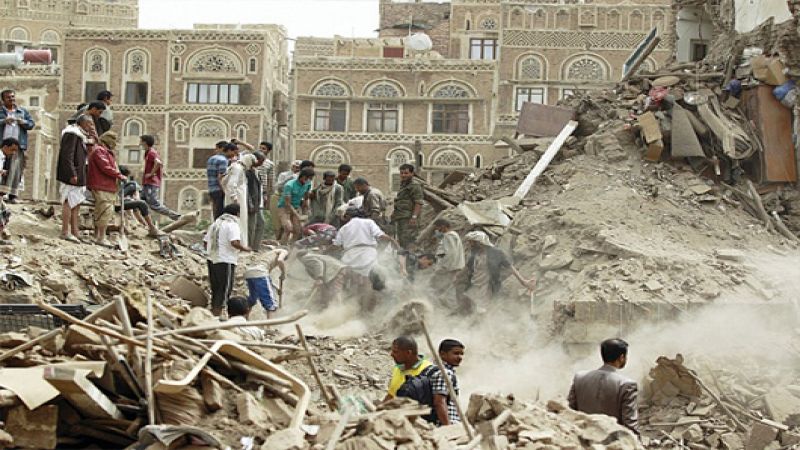
MEE staff
Britain is being urged to take the lead in peace talks to end the war in Yemen due to its power at the UN, its colonial history in the country and its relationship with the Saudi government, a former British international development minister has said.
In an article for Middle East Eye, Andrew Mitchell, an MP from the UK's ruling Conservative Party, said that Britain's current position on the war in Yemen - actively arming and supporting the Saudi-led coalition while trying through international aid initiatives to offset the damage it has caused - was an "uncomfortable reality" which must be addressed.
He argues that Britain must use its influence to help end a war that has left 10,000 dead, a country on the brink of starvation, and entrenched opposition to Saudi operations - all under the sponsorship of a UN Security Council resolution.
"Yemen is a country where residual respect and liking for the British remains surprisingly strong," he said. "Oxfam and the United Nations are carrying out extraordinary humanitarian work funded by British taxpayers. It is saving lives and bringing hope to Yemeni people caught up in wretched circumstances."
However, he added, "we are supporting the military action of our close ally and friend Saudi Arabia. But the Saudi government and its allies, supported by United Nations Security Council Resolution 2216, are effectively besieging a sovereign country."
UNSC resolution 2216 demands an end to violence in Yemen, recognizes the exiled, Saudi-supported president Abd Rabbu Mansour Hadi as the legitimate leader, supports the Saudi coalition's intervention on his behalf, and calls for negotiations between them and the Houthi Ansarullah revolutionaries.
"The tragedy for the Saudis is that they are pursuing a policy which is likely to defeat the very objectives which they are trying to secure. In Britain, we have learned the hard way that you cannot control the ground below from the air," Mitchell says.
"The appetite of members of the Saudi coalition to engage in Yemen will be greatly exceeded by the staying power of Yemen’s indigenous forces on the ground. These disparate Yemeni forces are united by hostility to Riyadh’s actions and now control most of the country."
Mitchell also argues that the Houthis should not be seen in a wholly negative light - nor as the stooges of Iran.
"The Houthi forces now in control of Sanaa – with support from the GPC, the former party of ex-president Ali Abdullah Saleh - have brought peace and stability to the capital and show signs of gaining significant public support as they at least tackle elements of corruption," he said.
Mitchell said Britain and the wider international community "should be wary of demonizing the Houthis and branding them as owned by Iran. They are not".
A ceasefire, negotiations and a replacement for the UN resolution could be achieved with British support, he argues. Britain, he says "holds the pen at the UN" on matters concerning Yemen.
"This will all be extremely difficult. But in my discussions with Saleh, with the Houthi president Abdullah As Samad... the Houthi/GPC alliance, despite British support for the Saudi position, will accept Britain chairing and mediating any Yemeni-Saudi negotiations within a UN structure. Indeed, such are the deep historic links of this region with Britain that our participation is sought."
Source: Middle East Eye, Edited by Website Team